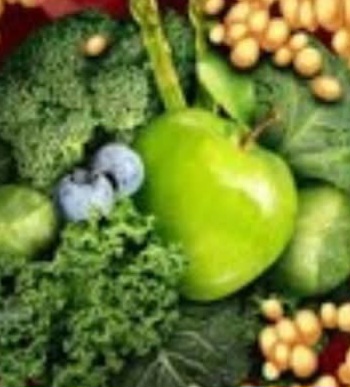Heart disease remains one of the leading health concerns in the United States, particularly among adults over the age of 50. But the good news is that your everyday food choices—especially when it comes to vegetables—can play a powerful role in protecting your heart.
While no vegetable is a “cure” or “miracle” food, many are packed with fiber, antioxidants, and anti-inflammatory compounds that may help support healthy blood vessels, maintain clear arteries, and reduce risk factors linked to heart attack and stroke.If you’re looking for simple, natural ways to take care of your cardiovascular health, start with your plate. These are 10 of the best vegetables to include in your heart-healthy lifestyle.1. Leafy Greens (Spinach, Kale, Swiss Chard)Dark leafy greens are rich in nitrates, compounds that may help improve blood flow and reduce blood pressure. They’re also loaded with vitamin K, which helps protect arteries and prevent calcium buildup in the vessel walls.According to the American Heart Association, eating a diet rich in leafy greens can support overall cardiovascular health.Try this: Add a handful of spinach to your smoothies or enjoy a kale salad drizzled with olive oil and lemon.2. BroccoliBroccoli is high in sulforaphane, a plant compound that has been shown in studies to reduce inflammation in blood vessels. It’s also a great source of fiber, which helps regulate cholesterol levels.Including broccoli in your meals just a few times a week may support better arterial function over time.Try this: Lightly steam or roast broccoli and sprinkle with garlic for a heart-friendly side dish.3. BeetsBeets are one of the richest sources of dietary nitrates, which the body converts into nitric oxide—a compound that helps relax and widen blood vessels.Several small studies, including research cited by Harvard Health, have shown that beet juice may help temporarily lower blood pressure.Try this: Drink a small glass of beet juice or add cooked beets to salads for a sweet, earthy flavor.4. Garlic (Vegetable and Herb Hybrid)Technically both a vegetable and an herb, garlic contains allicin, a sulfur compound that may help lower cholesterol and reduce plaque buildup in the arteries.Garlic has been used in traditional heart remedies for generations, and some clinical trials suggest it may modestly support heart health when used regularly.Try this: Add fresh chopped garlic to soups, stir-fries, or salad dressings.5. CarrotsCarrots are high in beta-carotene and antioxidants that help fight oxidative stress—one of the factors in artery damage. They’re also rich in soluble fiber, which can help lower LDL (“bad”) cholesterol levels.Try this: Snack on raw carrot sticks or roast them with a touch of olive oil and thyme.6. AsparagusThis green spear is a great source of folate, which helps regulate levels of homocysteine—a compound that may contribute to arterial damage if elevated.Asparagus also contains antioxidants and natural anti-inflammatory nutrients that help support healthy circulation.Try this: Lightly grill or sauté asparagus with lemon juice and black pepper.7. Brussels SproutsThese little cabbages are packed with glucosinolates, antioxidants that may help reduce inflammation and oxidative stress in blood vessels.Regular consumption of cruciferous vegetables like Brussels sprouts is associated with better arterial health, according to observational studies.Try this: Roast Brussels sprouts until crispy, and toss with balsamic vinegar for extra flavor.8. TomatoesTomatoes are rich in lycopene, a powerful antioxidant linked to improved blood vessel function and lower LDL cholesterol levels.Cooked tomatoes (like in sauces) have even more absorbable lycopene than raw, making them a smart addition to heart-healthy meals.Try this: Add fresh tomato slices to sandwiches, or simmer a tomato-based sauce for pasta.9. OnionsOnions contain flavonoids like quercetin, which may help lower blood pressure and support flexible, healthy arteries.They also have natural anti-inflammatory and antibacterial effects, which can benefit the vascular system.Try this: Add onions to salads, omelets, or roast them until caramelized for a sweeter flavor.10. Red Bell PeppersColorful bell peppers are full of vitamin C, which supports blood vessel integrity and helps the body absorb plant-based iron. They’re also rich in carotenoids and antioxidants that fight cell damage.Try this: Slice raw bell peppers for snacks or add them to a vegetable stir-fry.Tips for Including More of These Veggies in Your DietAim for at least 5 servings of vegetables per dayCook with heart-healthy oils like olive oil instead of butter or shorteningChoose steamed, roasted, or raw preparations over fried versionsSeason with herbs and spices instead of excess saltPair vegetables with whole grains and lean proteins for a balanced mealLifestyle Matters TooWhile vegetables are a powerful part of a heart-healthy lifestyle, remember that overall habits matter just as much. Staying active, managing stress, avoiding tobacco, and maintaining a healthy weight all contribute to better cardiovascular outcomes.And of course, always talk to your doctor before making significant changes to your diet—especially if you have heart conditions, take medication, or have concerns about cholesterol or blood pressure.Try It and Share the GoodnessStart adding more of these powerhouse vegetables to your weekly meals, and see how simple it can be to support your heart naturally. Every little bit counts—and your body will thank you for it.Know someone who cares about heart health? Share this list with them or bookmark it for your next grocery run.Looking for more wellness inspiration? Explore more healthy living tips on our site.Disclaimer:This article is for informational purposes only and does not substitute professional medical advice. Always consult your doctor before making changes to your health or nutrition routine.Top 10 Best Vegetables to Help Support Clear Arteries Naturally and Promote Heart Health
